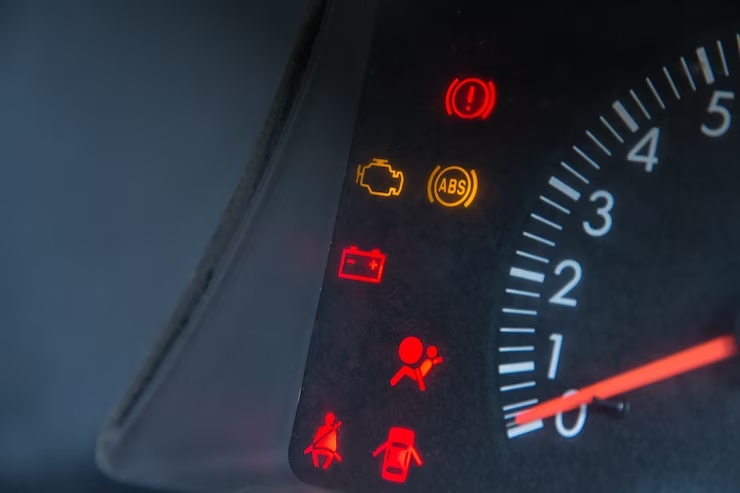Adaptive Brake Control (ABC) systems are advanced safety features in modern vehicles that enhance braking performance and stability. These systems utilize sensors, control modules, and hydraulic components to monitor the vehicle’s speed, wheel rotation, and other factors to provide optimal braking control. However, like any electronic system, ABC warning lights can occasionally illuminate, indicating a potential issue that requires attention. In this article, we will explore troubleshooting tips for adaptive brake control warning lights to help you understand the possible causes and potential solutions.
Understanding Adaptive Brake Control Warning Lights:
The adaptive brake control warning light typically appears on the vehicle’s dashboard to alert the driver about an issue related to the braking system. The exact appearance of the warning light may vary depending on the vehicle manufacturer, but it is usually yellow or red and is accompanied by a corresponding message or symbol.
Troubleshooting Tips for Adaptive Brake Control Warning Lights:
- Check Brake Fluid Level: Insufficient brake fluid can trigger the ABC warning light. Open the hood of your vehicle and locate the brake fluid reservoir. Ensure that the fluid level is within the recommended range. If it is low, add the appropriate brake fluid as specified in your vehicle’s owner’s manual. However, if the fluid level is consistently low, it may indicate a leak in the brake system, and you should have it inspected by a professional technician.
- Verify Brake Pad Wear: Worn brake pads can also cause the ABC warning light to illuminate. Inspect the brake pads visually through the wheel spokes. If the brake pads appear significantly worn, it may be time to replace them. Squeaking or grinding noises during braking can also indicate worn brake pads. Consult your vehicle’s owner’s manual or seek assistance from a certified mechanic to ensure proper brake pad replacement.
- Check Wheel Speed Sensors: Wheel speed sensors play a crucial role in the operation of the adaptive brake control system. They monitor the rotational speed of each wheel and provide vital data to the control module. Dirty or damaged wheel speed sensors can lead to the warning light activation. Carefully inspect the sensors for any signs of damage or debris accumulation. Clean the sensors with a soft brush or cloth if necessary. If the sensors are damaged, they may need replacement, which should be performed by a professional technician.
- Inspect ABS Rings: ABS rings are toothed rings located on each wheel hub or axle shaft. They work in conjunction with the wheel speed sensors to provide accurate wheel speed data. Damaged or missing teeth on the ABS rings can cause erratic readings and trigger the ABC warning light. Inspect the ABS rings for any signs of damage or missing teeth. If damage is detected, it is advisable to have the rings replaced by a qualified technician.
- Diagnostic Scan: If the ABC warning light persists after checking the brake fluid, brake pads, wheel speed sensors, and ABS rings, it is recommended to perform a diagnostic scan using specialized equipment. The diagnostic scan will retrieve error codes from the control module, providing more specific information about the issue. With the error codes, a professional technician can diagnose the problem accurately and perform the necessary repairs or adjustments.
Adaptive Brake Control warning lights are essential indicators of potential issues with the braking system. Ignoring these warning lights can compromise vehicle safety and braking performance. By following the troubleshooting tips mentioned above, you can address some common causes of ABC warning light activation, such as low brake fluid, worn brake pads, dirty wheel speed sensors, or damaged ABS rings. However, it’s important to remember that some issues may require the expertise of a certified mechanic or professional technician to diagnose and repair. Prompt attention to adaptive brake control warning lights will help ensure your vehicle’s braking system operates optimally, providing a safer driving experience for you and others on the road.











